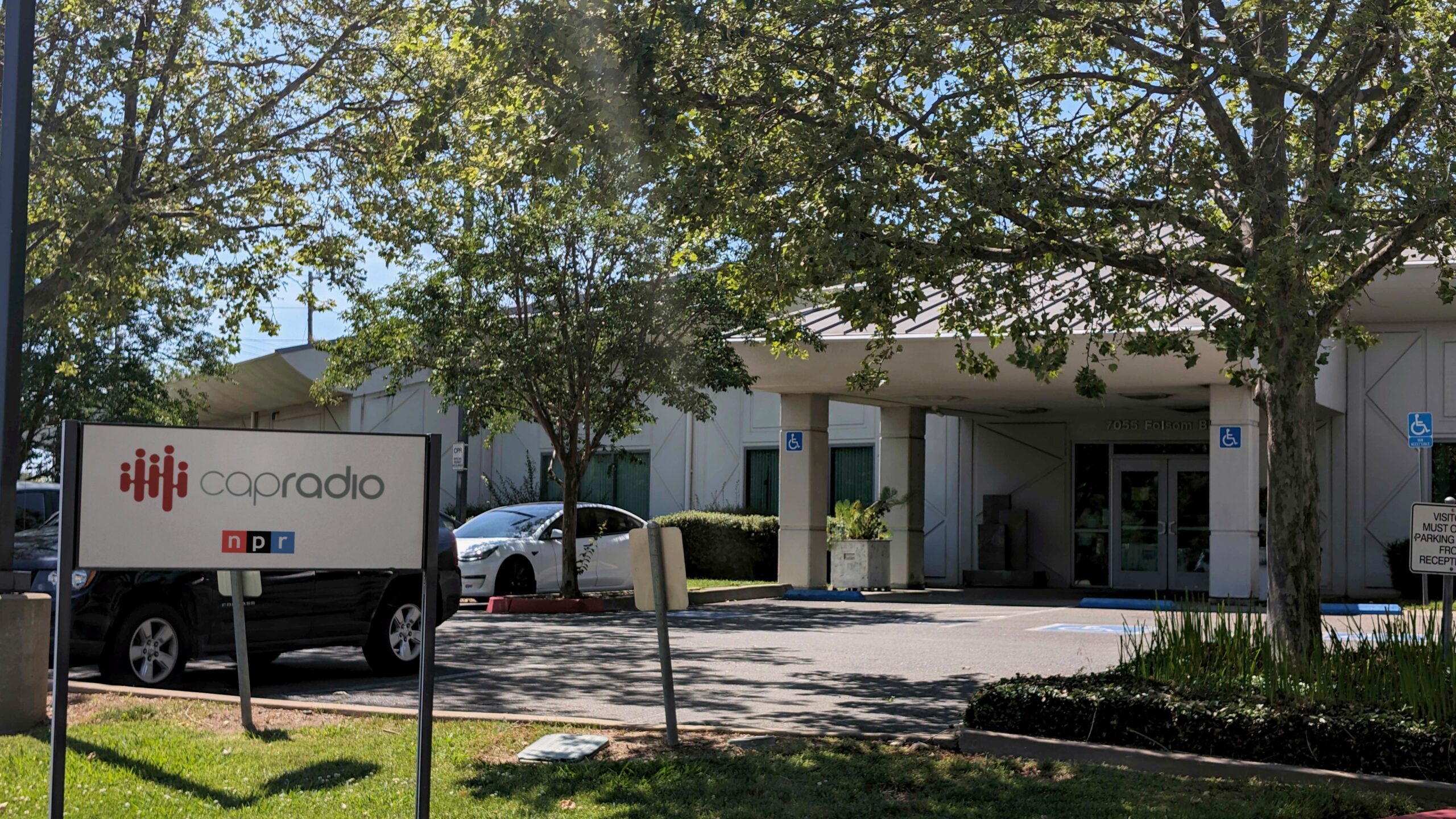Merger: we’re not talking now, but we might be talking later
It may be a simple question–are PRI and NPR talking about a merger?–but that doesn’t mean it gets a simple answer. To keep their options open, the presidents of the two networks are employing nuances that reach beyond the English of newspaper headlines and into metaphysical realms of potentiality.
Asked to clarify their positions Feb. 19 [1998], NPR’s Delano Lewis said talks with PRI are still ongoing and PRI’s Stephen Salyer said they’re not, “currently.”
Lewis was questioned at the NPR Board meeting after trade periodicals delivered conflicting assessments that both came from Salyer:
- “NPR-PRI merger talks are off, says Salyer,” said the headline of Current‘s Feb. 2 article. The networks will continue discussing ways to cooperate, but, “From PRI’s perspective, there are no active conversations at this time about merger,” Salyer said.
- “Merger talks with NPR remain open–Salyer,” headlined a competing newsletter, Public Broadcasting Report on Feb. 13. Salyer “remains open to merger discussions,” the newsletter reported. He said the situation hadn’t changed since October, when the merger talks were disclosed. At that point, PRI “put issues on the table … principles we needed to agree upon,” he added.
So, talks about a merger were not happening at the time–they were “off” at the moment anyway, but PRI was open to them. Could both headlines be correct?
Perhaps so, judging from PRI’s clarification, issued Feb. 19: “PRI is not currently in conversations with NPR about merger. The door remains open, however, to exploring ways in which the two companies can collaborate to the benefit of public radio.”
Some kind of cooperation short of merger appears to be the most likely outcome. Lewis told the board that talks may lead to “collaborative projects.” Salyer also acknowledged in January that the NPR Board is unlikely to accept a change in its board composition–one of the “principles” necessary for an all-out merger that PRI laid down in October.
So, there is a potentiality of life in merger talks, as in a fertilized egg
perhaps, or in the Milky Way. But don’t count on a June wedding.
NPR-PRI merger talks are off, says Salyer
Originally published in Current, Feb. 2, 1998
By Jacqueline Conciatore
Though NPR President Delano Lewis seems unwilling to bury hope for a merger between the two major public radio networks, PRI President Steve Salyer says talks about an all-out merger are over.
Though NPR and PRI will continue discussions about ways to cooperate for the benefit of public radio, “from PRI’s perspective, there are no active conversations at this time about merger,” Salyer told Current in a phone interview Jan. 28.
“We will continue to be separate organizations. We will continue to be competitors,” he said.
In late October, Salyer and Lewis each presented to their boards a broad plan for a possible merger, citing the need for public radio to develop a coherent response to competitive threats from commercial media.
The Monday following NPR’s presentation to its board Oct. 25 and 26, the company made a brief mention of the proposal to its staff in a memo. Later that day, after buzz in the system had grown strong, PRI issued a press release about its board meeting Oct. 23, making no mention of the talks with NPR.
Salyer did not at that time say the merger attempt was a bust, but PRI has consistently sounded less optimistic and interested in a merger than NPR has.
Even last week, Lewis said: “I’m not sure I’m prepared to say it’s not going to happen. My view is that we will continue talks. I’m not so sure where they’re going to go, but [we’ll] always keep merger as a possibility, while we continue to consider other ways to cooperate.”
He said PRI and NPR’s board chairs would soon meet and that “in the next conversation, [we’ll ask], ‘Should we say completely stop, or move to next step?'”
But he doesn’t argue with an account Salyer gave to Current: “We talked in last few days and Del and I concluded we probably would be best served to not continue speculation about merger and send confusing signals to people all around, but rather to say we’re not continuing to talk merger–but that doesn’t mean we don’t think the future can hold opportunities [for PRI-NPR collaboration].
“That’s pretty close to verbatim,” says Lewis. Asked about the different readings of the same conversation, he said: “I don’t know. Maybe it’s a difference in personalities. I’m always optimistic.”
“I think what you’re getting from NPR is, that the door is not shut to talking to each other,” said Salyer.
Governance and succession issues proved to be the stumbling blocks to merger, upper-level sources at NPR said last year. In many ways, PRI’s private nonprofit structure makes for a far nimbler organization than NPR is with its station members, and PRI’s board had stated emphatically that it wouldn’t consider any merged entity that didn’t preserve its organizational model.
The PRI Board simply wasn’t interested in a setup that would require a board controlled by elected station managers, an upper-level source told Current. The NPR Board is two-thirds elected station managers. PRI’s is self-appointed, with some station representation.
The PRI Board also wanted Salyer to be first in line to succeed Lewis as c.e.o. of any merged company, the NPR sources said. “Everyone [on the NPR Board] was pretty unanimous in thinking we can’t tie future boards in that [way],” said one source at the time.
News of the possible merger was greeted with cautious interest by some, and dread by others. Opponents of the idea worried about losing the benefits of competition, including programming diversity and access for producers to the airwaves.
Neither Lewis nor Salyer would discuss what possible NPR-PRI collaborations
are on the table.





